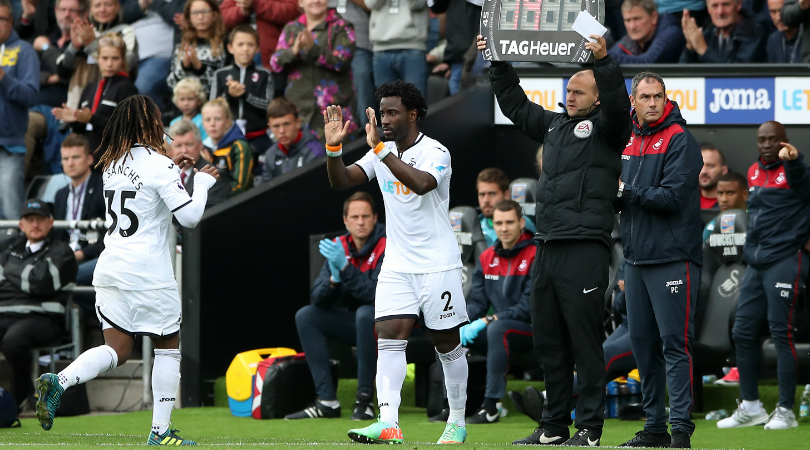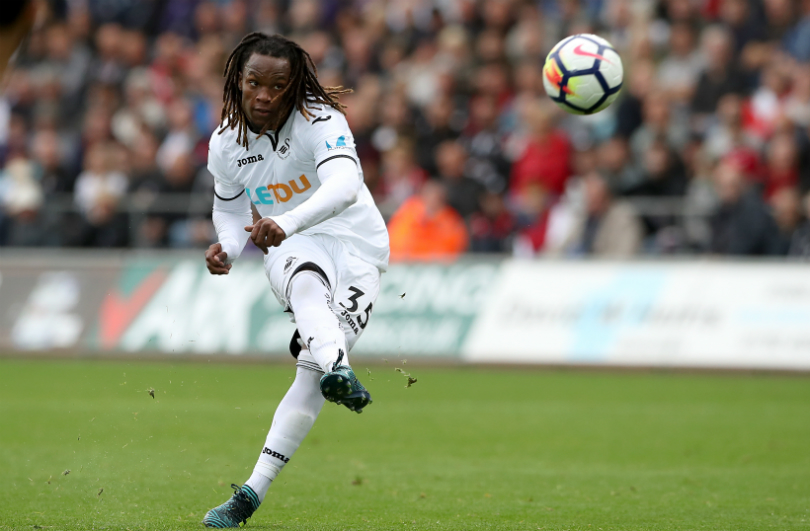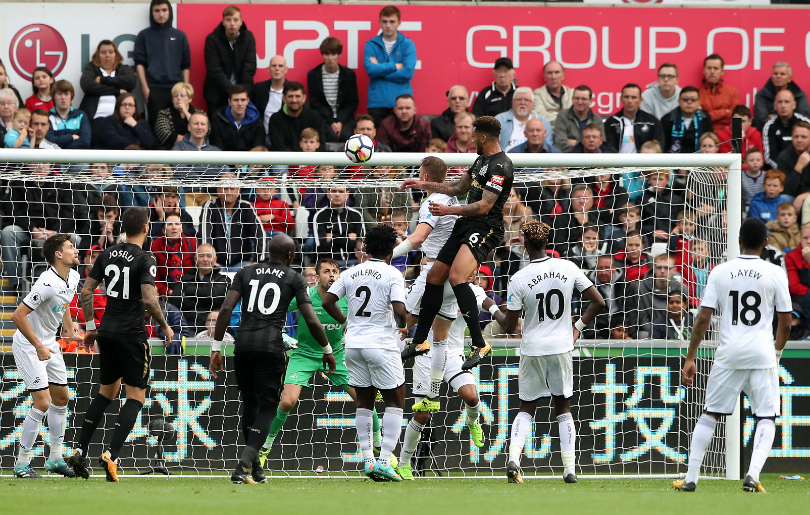Swansea will need to accelerate Renato Sanches's adaption to the Premier League
Seb Stafford-Bloor was at the Liberty Stadium to watch Renato Sanches make his debut for Swansea in their 1-0 loss to Newcastle

A week after Renato Sanches completed his loan move to Swansea, Wales Online ran a brief feature on the young Portuguese. With the international break over and the league season returning into view, they lovingly detailed how the midfielder would spend his first day at his new club: when he would meet his team-mates, what his media duties were, how many training sessions he'd complete before making his debut against Newcastle on Sunday.
Football supporters are habitually cycnical and, in the main, deadened to the novelty of high-profile players. But this was perfect. Swansea have been in the Premier League for six years now and, in that time, the Liberty Stadium has truly become a fixture in the top-flight calendar, but that article captured the novelty of seeing a glinting wunderkind in native white. Modern football has a created many irritating new truisms and one of them is that a certain type of player only plays for a certain type of club.
Reasons for cheer
Sanches is that player, but Swansea are not that club. They've carried talent in their squads over the past five seasons, but never before someone so capable in so many different parts of the game. Michu's voodoo dissipated almost as soon as it started to puff; Leon Britton's excellence is in his honed simplicity; and Gylfi Sigurdsson, though hugely influential, had athletic flaws which needed to be accommodated.
By contrast, although he will only be in south Wales for a season, Sanches promises the brightest parts of the rainbow.

The midfielder remains only partially formed, spending his maiden season at Bayern Munich regressing in the wilderness, but his talent is undeniable. A two-way player in the updated, white collar sense - his game a balance of graft and gift - he's young enough to be anything he desires, but already suitably complete to theoretically nudge his new team's needle.
Swansea will need that to happen; Paul Clement has redrawn the flourishes in his club's ideology with straighter, more pragmatic strokes. Survival last season was an accomplishment but it was still a percentage-based grind and, before Sanches's arrival, 2017/18 promised to be more of the same.
Get FourFourTwo Newsletter
The best features, fun and footballing quizzes, straight to your inbox every week.
Trouble with Toon
Newcastle are a team blighted by internal politics and, as ever, hamstrung by their owner's self-defeating innuendo. They arrived at a sodden Liberty Stadium without Rafa Benitez, who was recovering from a hernia operation, and with only a win over the similarly confused West Ham to their name. Though clearly nobody's idea of an acid test, they were greatly improved from before the international break here, and are one of the sides with whom Swansea should be directly comparing themselves.
On this evidence, that's troubling.

Sanches was broadly as advertised. The opening periods of Sunday's game were littered with mild overindulgence and a finesse in the tackle which doesn't really belong in the Premier League; sometimes a prod and a poke just won't do, especially when a full-blooded punch is required instead.
Phenomenally talented though he might be, he remains a footballer out of touch. Playing barely 600 minutes for Bayern Munich last season will have damaged his fitness and likely his confidence, but has evidently rusted his fundamentals too. His passes lack pace; his turns into space are weighed down by hesitation.
But Sanches's value isn't confined to his literal contribution. WIth great talent comes great theory, and perhaps that's of equal worth to Swansea. Within the narrow parameters of Clement's mechanical side, his touches promise more and his imagined threat to opponents is greater. It's a wifty, ethereal quality, but it's still a necessary one - the value of which could be heard in the crowd when his name was read out before kick-off and in the murmurs and applause tickled out by his touches.
Regrettably, it was also emphasised by Swansea's performance. Jamaal Lascelles' fine header gave Newcastle a win they probably deserved, but more worrying was the hosts' repetition - this was by-the-numbers football, push-the-ball-out-wide-and-hope-something-happens football. No combinations, no invention and no real entertainment.

In good time
The worth of a precocious playmaker within that context should be obvious. Swansea need variation within their game and, ultimately, a good reason for their supporters not to shuffle out of the ground mutteringly darkly.
Sanches can be that reason - eventually.
After half-time, he was pushed forward. One of the challenges facing a player in a new league is, of course, the speed of the game - particularly so after a move to England. While Sanches had looked initially comfortable, operating solely with the play in front of him, the more advanced role exposed his lack of preparation. Physically tiring and lacking any chemistry with his team-mates, he made little impact as the ball zig-zagged around him. Inevitably, he was replaced by Wilfried Bony with 30 minutes left and slumped exhausted into the dugout.
This was the honeymoon game; an afternoon when the cameraphones flashed cheerfully and every mis-step and loose pass was always likely to be forgiven. Troublingly, though, it was evident just how much Swansea might come to rely on this half-fit, quarter-formed player and how urgently they need their apparently risk-free gamble to pay off.
Seb Stafford-Bloor is a football writer at Tifo Football and member of the Football Writers' Association. He was formerly a regularly columnist for the FourFourTwo website, covering all aspects of the game, including tactical analysis, reaction pieces, longer-term trends and critiquing the increasingly shady business of football's financial side and authorities' decision-making.
